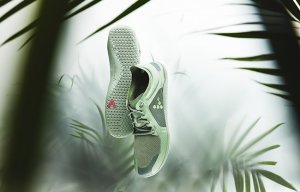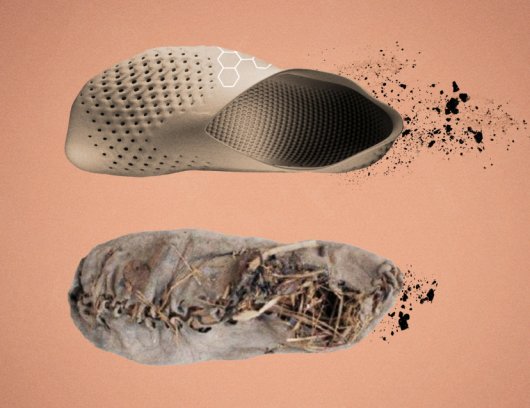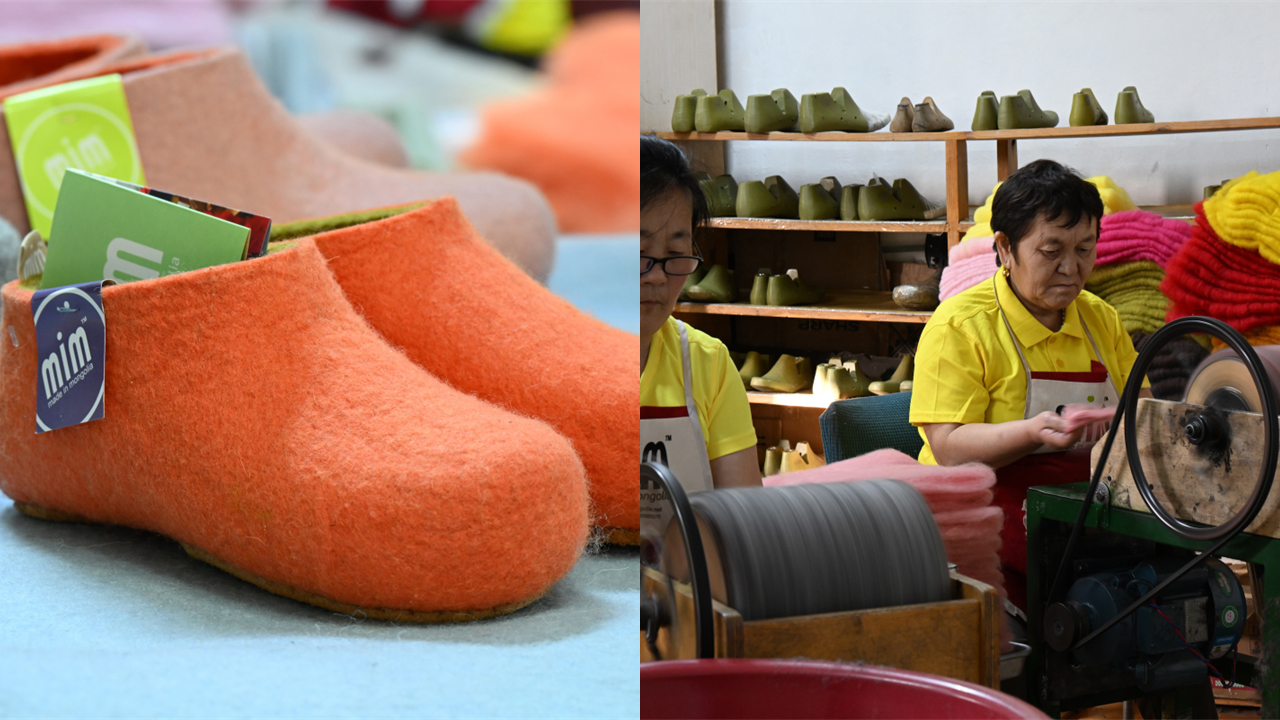
New plant-based shoes from Vivobarefoot
3D printed BioCirflex maintains a high flexibility similar to TPU.

25th January 2024
Innovation in Textiles
|
London
Sustainable footwear brand Vivobarefoot is starting 2024 with the furtherance of two notable projects – the ongoing development of fully biobased and biodegradable 3D printed footwear and the widespread promotion of MIM (Made in Mongolia) slippers.
The company has partnered with Balena, the developer of BioCirflex, a high-performance, durable, flexible and fully industrially compostable and recyclable thermoplastic elastomer. Comprising over 50% bio-based content, it actively reduces the dependence on fossil fuel-based materials typically used in the footwear industry and aims to replace unsustainable materials such as TPU, PVC, and LDPE.
Through a biological recycling mechanism, products crafted from BioCirflex are able to decompose and biodegrade.
3D printed BioCirflex maintains a high flexibility similar to TPU, providing reliable and long-lasting products and is now being employed in Vivobarefoot’s VivoBiome scan-to-print digital footwear. VivoBiome shoes are based on biomimetic design principles and additive manufacturing methods and currently in the testing phase in the UK, with a view to being commercially available in the next 18 months.
Complexity
The magnitude of the footwear industry’s environmental impact cannot be overstated, observes Vivobarefoot co-founder Asher Clark, with the World Footwear Yearbook reporting an astonishing 24 billion pairs of shoes added to the market annually.

“The journey toward a circular end-of-life system for footwear faces a significant challenge rooted in the intricate nature of shoes – both in their design intricacy and the diverse materials used during manufacturing,” he said. “The complexity arises from the multitude of components, making recycling and reintegrating used shoes into the supply chain a formidable task. As a solution, the need for biodegradable material alternatives becomes imperative.”
Made in Mongolia
Vivobarefoot has meanwhile partnered with Asral, an NGO based in the remote Mongolian steppes, to introduce MIM (Made in Mongolia) natural wool felt slippers and contribute to positive change in one of the world’s poorest regions.
Under the Asral organisation’s umbrella, MIM operates as a non-profit social impact business, crafting each pair of slippers with meticulous attention to detail. The natural wool felt slippers are a testament to a thousand-year-old Mongolian tradition, blending cultural heritage with contemporary design. Female artisans, trained by Asral, bring handcrafted excellence to each pair through a process involving cutting, sewing and assembling.
Proceeds from the MIM slipper sales – with 8,000 pairs sold or on order to date – directly benefit the community in the Gobi desert, and have provided employment opportunities for around fifty women so far. Asral’s extensive initiatives, such as the Hot Meal project, skills training programmes and support for vulnerable groups, receive crucial funding through this collaboration.

Business intelligence for the fibre, textiles and apparel industries: technologies, innovations, markets, investments, trade policy, sourcing, strategy...
Find out more